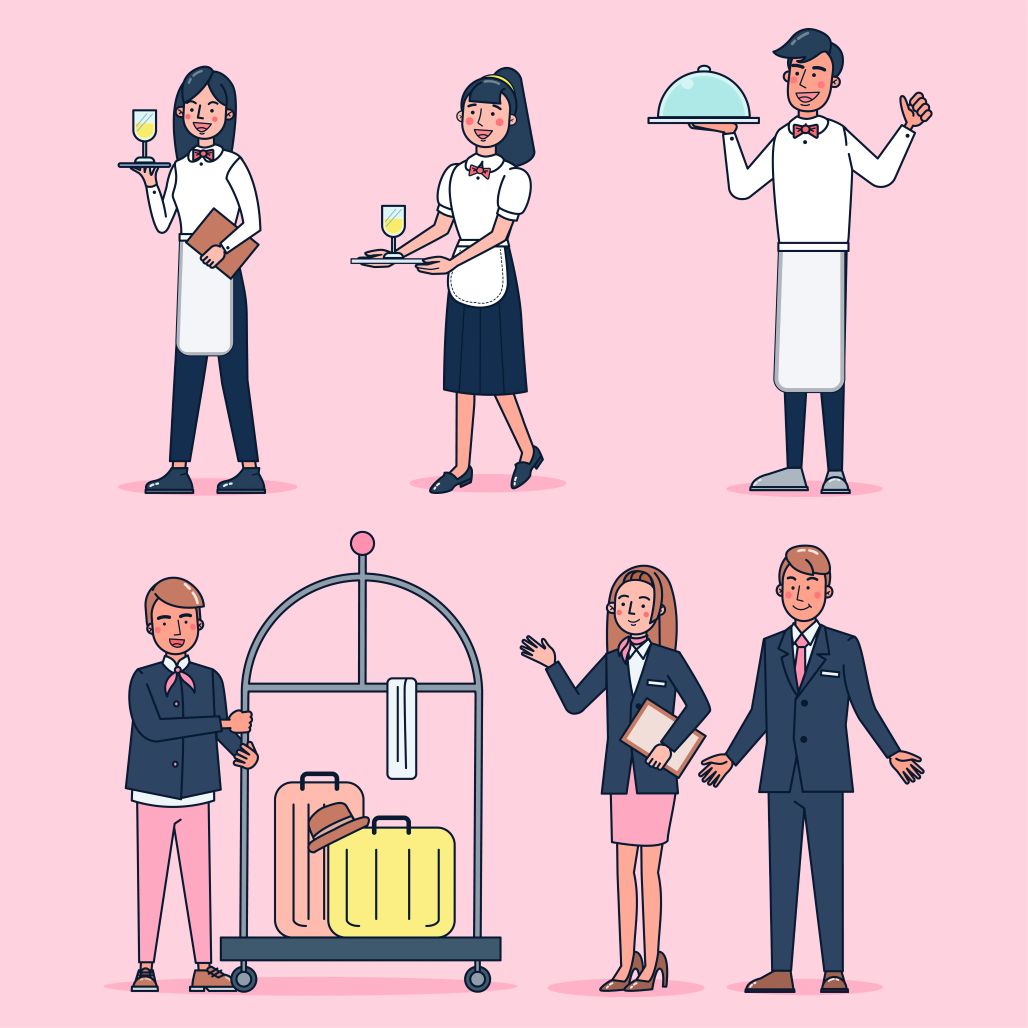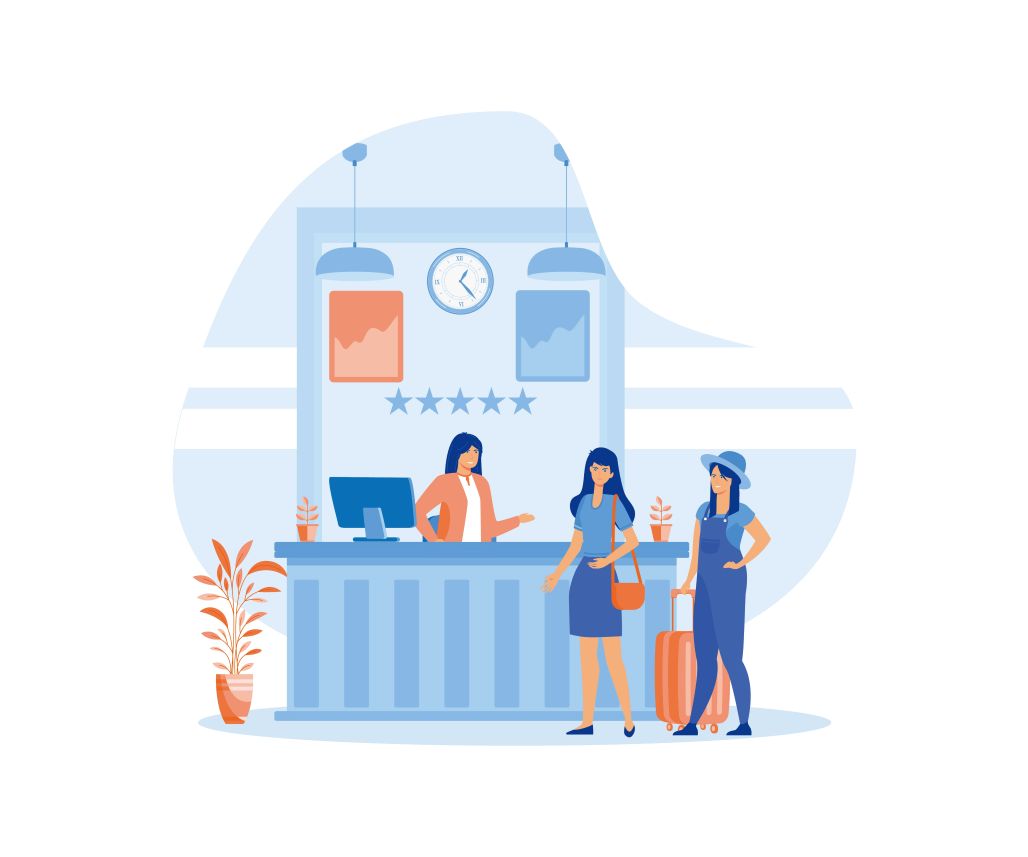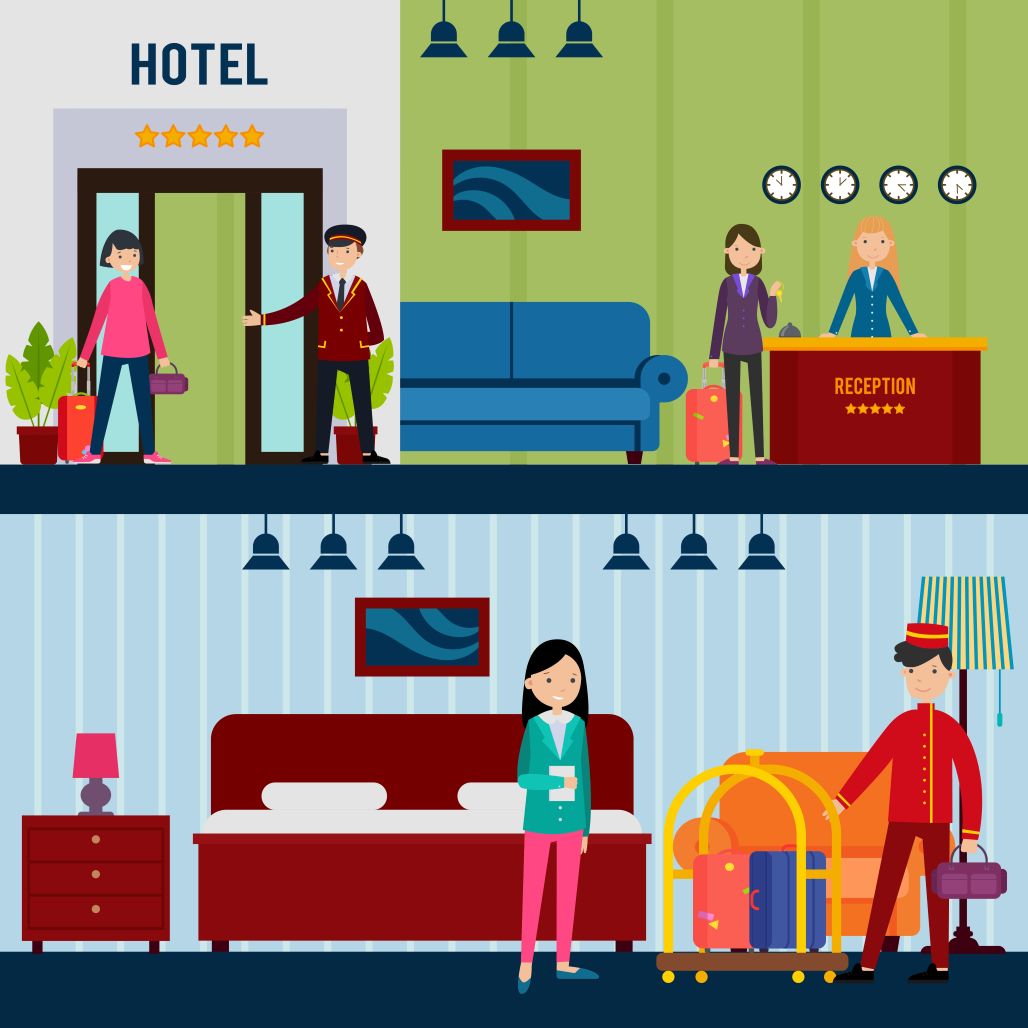In the ever-competitive world of hotels, resorts, restaurants and luxury lodging, one truth remains: the guest experience is king. And nowhere is that more evident than in how well staff are trained—not just in technical operations, but in the human touch. Hospitality training is the cornerstone that bridges what a guest expects and how they feel during their stay.
“The quality of service provided by hotel staff is one of the most significant factors affecting guest satisfaction.” - Hospitality Insights
That’s where platforms like Calibr step in—offering structured, role-specific training that combines service excellence with soft skills development. By equipping employees with the right knowledge and customer-first mindset, Calibr helps hotels create memorable experiences that turn first-time guests into loyal patrons.
Ready to raise your guest satisfaction scores and set your property apart? Discover how Calibr can help you design, deploy, and monitor training that delivers real guest-delight. Get a free demo today, and see the difference in service quality that your staff—and your guests—will appreciate.
What Is Hospitality Training?
Hospitality training refers to structured learning programs that equip frontline and back-office staff with both technical skills (room service, housekeeping, safety, etc.) and soft skills (communication, empathy, cultural awareness, etc.). It is more than routine orientation—it’s ongoing development that ensures consistency and excellence in guest interactions.

Types of Hospitality Training Programs
Onboarding & Orientation
This is often the first touchpoint in any hospitality training program. New hires learn about brand values, service standards, company culture, and role expectations. A well-designed onboarding ensures staff feel confident from day one, reducing early turnover and enabling them to deliver consistent service quickly.
Guest Service Training
Often called hospitality customer service training, this focuses on building the soft skills that define memorable experiences. It complements hotel guest service training, which hones practical skills for front desk, concierge, and room service teams. Staff are trained to greet guests warmly, listen actively, handle complaints professionally, and resolve issues without delay. By practicing empathy and problem-solving, employees learn how to transform a dissatisfied guest into a loyal one.
Operational Training
Behind every smooth guest experience is a well-coordinated operation. Operational training ensures staff understand their specific roles—whether in F&B service, housekeeping, front desk, or maintenance. Standard operating procedures (SOPs), safety compliance, and efficiency techniques are reinforced so that service delivery is both seamless and reliable.
Luxury Hospitality Training
In high-end hotels and resorts, expectations are higher. Luxury hospitality training focuses on personalization, attention to detail, and discretion. Employees learn how to anticipate needs before guests even ask, tailor services to individual preferences, and maintain a refined sense of professionalism. This type of training often includes etiquette, fine dining service, cross-cultural awareness, and handling VIP clientele.
Digital, Mobile & Blended Learning Approaches
Modern hospitality training programs increasingly adopt digital solutions to ensure learning is flexible and scalable. Mobile learning platforms allow staff to complete guest service training modules anytime, anywhere—even between shifts. Blended approaches combine classroom workshops with e-learning, microlearning, and real-time assessments. These methods not only improve knowledge retention but also keep employees engaged and motivated.
All of these training types—whether onboarding, guest service, operational, luxury, or digital learning—can be designed, delivered, and tracked seamlessly with Calibr. The platform makes it easy for hospitality businesses to standardize training while keeping it flexible, engaging, and scalable. Thus, by using a hospitality LMS, hotels can ensure every staff member completes mandatory modules and tracks progress in real time
Guest Service & Guest Experience: Definitions

Guest Service Meaning & What Is Guest Service
In the hospitality industry, guest service refers to the assistance, amenities, personalised support, and problem-resolution staff provide to guests. It focuses on meeting immediate needs—whether it’s fulfilling room requests, handling complaints, or ensuring comfort and safety.
Platforms like Calibr offer guest service training that equips staff to respond effectively and turn potential issues into positive experiences. These programs are part of broader hospitality guest interaction training, ensuring staff understand nuances of tone, body language, and cultural etiquette. For example, a front desk associate might handle a last-minute room change or a restaurant server may accommodate special dietary needs with ease. When staff are well-trained, these moments strengthen guest trust and satisfaction.
Guest Experience
The guest experience goes beyond individual services. It includes every touchpoint and emotion during a stay—from booking confirmation, arrival, and interactions with staff to room comfort, dining, ambiance, and departure.
Where guest service is transactional, the hospitality customer experience is holistic. It combines staff behaviour, personalization, environment, and how expectations match reality. Warm greetings, anticipating needs, and consistent follow-up create lasting impressions that define the overall experience.
Hospitality vs Customer Service
Although related, hospitality vs customer service emphasizes two complementary aspects:
Customer service focuses on mechanics—how quickly staff respond, politeness, and problem resolution.
Hospitality is the philosophy—warmth, attentiveness, anticipating needs, and creating memorable experiences.
Together, they form quality guest service that keeps guests returning and builds loyalty.
Why Both Are Critical: The Impact
Consistency in Satisfaction & Loyalty
Understanding what is guest service helps staff focus not just on tasks, but on meaningful interactions that delight guests consistently. A well-designed hospitality training program lensures staff deliver the same standard of service across all touchpoints. This consistency builds trust, encouraging repeat visits and positive word-of-mouth.
Reduced Complaints and Negative Reviews
Hospitality customer service training teaches staff to anticipate issues and respond proactively. Promptly addressing concerns, like room errors or delayed service, turns challenges into opportunities to impress guests.
Employee Engagement & Retention
High turnover is a major challenge in hospitality. When staff participate in hospitality training programs, they feel valued and confident. Engaged employees perform better, which directly enhances the guest experience.
Competitive Differentiation
Hotels and resorts compete not just on facilities but on guest experience. Luxury hospitality training equips staff to add personal touches, anticipate guest needs, and deliver discreet, personalized service, setting the brand apart.
By combining hospitality training with guest service training, organizations ensure staff are skilled, confident, and empathetic—delivering the best customer service experience that defines and elevates the guest experience. With Calibr, hotels and resorts can seamlessly design and deliver both types of training, ensuring consistency, personalization, and excellence across every guest interaction.
Quality Guest Service: What That Looks Like

Defining quality guest service means looking beyond basic efficiency and focusing on experiences that feel genuine and memorable. Here’s what it looks like in practice:
Smooth check-in/check-out experience
Staff who have undergone hotel guest service training are able to handle high-pressure situations with professionalism and ease. Guests don’t want to wait in long lines or deal with errors. Hospitality training programs prepare staff to handle reservations efficiently, use technology seamlessly, and maintain a friendly tone during these first and last touchpoints.
Staff who remember guest preferences
Whether it’s a preferred room type, favorite drink, or cultural requirement, remembering details shows guests that they are valued as individuals. Luxury hospitality training emphasizes this personalization as the hallmark of high-end service.
Prompt resolution of mistakes
Problems are inevitable, but guests forgive quickly when issues are resolved with urgency and empathy. Hospitality customer service training equips staff with conflict-resolution techniques, empowering them to turn a negative situation into a positive memory.
Clean, comfortable physical environment
Service quality also depends on environment. Housekeeping, maintenance, and F&B teams must be aligned through operational training to ensure standards of safety, hygiene, and comfort are always met.
Consistent tone, warmth, not robotic service
No matter how busy staff are, guests notice the difference between scripted service and genuine warmth. Guest service training encourages staff to listen actively, smile naturally, and connect emotionally.
With Calibr, every dimension of guest service—from check-in to checkout—is reinforced through mobile learning, role-specific paths, real-time assessments, and analytics that ensure consistency across the entire team.
The Guest Experience Begins With…
Many people assume the guest experience starts at check-in, but in reality, it begins much earlier. Include hospitality guest interaction training to refine every personal touchpoint that guests experience. In today’s digital age, first impressions are shaped by:
Online reviews and ratings – Guests often research hotels on platforms like TripAdvisor or Google before booking. Negative reviews can discourage potential customers before they even interact with your staff.
Reservation confirmations – The tone and clarity of confirmation emails or calls set expectations. A polite, reassuring confirmation builds trust right away.
Digital presence – Websites, apps, and social media profiles should reflect the same professionalism and warmth expected during an in-person stay.
Hospitality training must prepare staff for every guest interaction, whether it’s a front desk greeting or responding to an online query. By aligning tone, communication, and professionalism across touchpoints, brands create a consistent and reliable image—well before the guest steps inside the property.
With Calibr, hotels can prepare staff for every stage of the guest journey—online, offline, and on property. Its features like mobile microlearning, blended training modules, and role-specific learning paths ensure employees are equipped to deliver the same warmth and professionalism across all touchpoints.
Metrics & Data To Prove Value
The value of hospitality training programs is proven by hard data:
Over 60% of hospitality leaders say they have increased investment in training in recent years because of its direct impact on guest satisfaction and loyalty ( Opus.so).
In the UK, the hospitality industry records an annual staff turnover rate of 73.8%—one of the highest across sectors. Strong employee training & development programs have been shown to reduce attrition by building confidence and engagement ( Lingio).
Reports consistently show that guest satisfaction improvements are closely tied to staff training programs that focus on communication, problem-solving, and attitude. When employees feel competent and empowered, guests feel cared for, valued, and more likely to return—driving both loyalty and positive word of mouth for the brand.( ScholarWorks, Hospitality Insights).
These figures confirm that investing in hospitality customer service training and continuous learning isn’t just beneficial—it’s essential for business growth.
How Hospitality Training Works in Practice
Imagine this scenario: A guest arrives at your hotel hours before the standard check-in time. Instead of making them wait, the front desk staff—trained through hospitality customer service training—welcomes them warmly, offers a comfortable space to relax, and immediately checks room availability. Thus, a hospitality LMS ensures learning is accessible, engaging, and measurable across all departments, from front desk to housekeeping.
Thanks to operational training, housekeeping is alerted via a mobile system to prioritize the guest’s room. This seamless coordination is the result of effective guest training, ensuring every employee knows how to anticipate and respond to guest needs. Within minutes, the guest is settled, with a complimentary drink that matches their recorded preference from a previous stay.
This seamless coordination is not accidental—it’s the result of hospitality training programs that align every department, from front desk to housekeeping to F&B. Staff are empowered to solve problems, anticipate needs, and deliver personal touches that define the best customer service experience.
With platforms like Calibr Learn, hotels and resorts can make this process easier by:
Offering personalized learning paths for each role
Using mobile learning to train staff on-the-go
Reinforcing knowledge with microlearning modules for real-world scenarios
When training is consistent and accessible, employees feel confident to act quickly, and guests feel valued from the very first interaction.
Want to see how this can work for your team? Explore Calibr to transform training into unforgettable guest experiences.
Defining Excellent Guest Service Through Training
In hospitality, what guests remember most isn’t just the décor or facilities—it’s how they were treated. The warmth, efficiency, and attention to detail create lasting impressions that determine whether they return or recommend the property. A hospitality LMS ensures learning is accessible, engaging, and measurable across all departments, from front desk to housekeeping.
To truly define excellent guest service, organizations must:
Invest in hospitality and customer service training programs
Ensure luxury and personalization standards are built into every touchpoint
Use methods that reinforce learning regularly
Measure outcomes with clear metrics
.
When organizations strike the right balance between the mindset of hospitality and the skillset of customer service, they create environments where guests feel valued from the very first interaction to the last goodbye. This not only defines the best customer service experience, but also builds loyalty, advocacy, and memorable moments that keep guests coming back.
With Calibr, hospitality brands can bring all these training elements together—soft skills, luxury standards, ongoing microlearning, and data-driven analytics—on one scalable platform. From onboarding to advanced guest service, Calibr ensures your team is always prepared to deliver excellence.
Ready to elevate your guest service training?


